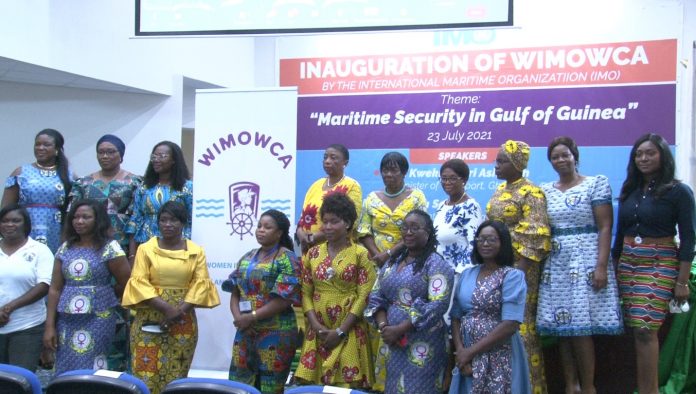The Women in Maritime of West and Central Africa (WIMOWCA) has asked for a stronger collaboration with state actors to ensure efficient security and rid the Gulf of Guinea (GoG) of the rising pirates and robbery attacks.
The WIMOWCA, a newly established association of professional women in maritime within the two sub-regions, said there was the need for a better understanding of the situation in the GoG in order to design strategies that could address them.
A solution to address the maritime security challenges which were not necessarily peculiar only to Africa but the world at large was crucial to help accelerate trade.
The interim president of WIMOWCA, Ms Sylvia Asana Dauda Owu, who made the call at the inauguration of the association, observed that WIMOWCA was committed to be part of attempts to ensure global maritime security.
“It is that the women in maritime of West and Central Africa will appropriately play their role in that respect,” he said.
The inauguration was on the theme: “Maritime security in the Gulf of Guinea,” and hosted key personalities in the maritime and logistics industry.
WIMOWCA on insecurity
The president noted that the importance of the topics to be discussed as part of the activities marking the launch of WIMOWCA on maritime security in the GoG and recent developments in the region was no doubt a major global concern and required collective efforts.
According to her, maritime security plays a very important role in ensuring the efficient operations of the global supply chain.
She said in recent times and at a progressively increasing level Africa has become acutely vulnerable to maritime crime, which was seen as a low risk, and high reward business.
“The GoG has one of the world’s richest fishing grounds and represents almost five per cent of global fish production.
“The fisheries sector is a critical source of employment for millions of people. In West Africa alone, up to a quarter of jobs are linked to the fisheries sector.
“These resources contribute to the economic dynamism of the region, and its economic potential is expected to increase in the coming years (the region will comprise a quarter of the world’s population by 2050).
“But before it can realise and benefit from this potential, threats to its stability and prosperity must first be addressed,” she said.
Maritime affluence
The region’s maritime affluence has attracted non-state actors, who lack economic opportunities elsewhere, to engage in illicit activity which is fueled by regional corruption, high levels of unemployment, and a lack of good governance.
According to the International Maritime Bureau, the number of kidnappings at sea reported in this region increased by 40 per cent between 2019 and 2020, with the Gulf accounting for approximately 95 per cent of global kidnappings.
The GoG has, therefore, overtaken the Gulf of Aden and Somalia as the leading global piracy hotspot. In 2019, 111 acts of piracy were counted, compared to 25 in the Indian Ocean.
Piracy and armed robbery at sea have long been regarded as a threat to international peace and security. But other types of maritime crime are just as significant.
Damage to economy
The Secretary-General of the International Maritime Organisation (IMO), Mr Kitack Lim, said piracy and armed robbery continue to damage the economy and trade.
He said this situation has continued for several years, and these illegal acts must be stopped.
“Now is the time to make real progress. I am grateful to all coastal states in the region and international partners that have made positive strides in the area of interagency cooperation and response.
“IMO continues to support efforts within the framework of the Yaoundé code of conduct and in partnership with the littoral states.
“I am encouraged to see that you chose the topic of the maritime security situation in the GoG for the panel discussion during the launch event.
“I am hopeful that your deliberations will yield useful suggestions to support efforts to tackle the menace of piracy in the region,” he said.
Working together
The Minister of Transport, Kwaku Ofori Asiamah, stated that piracy and armed robbery at sea could not be tackled by only one government.
He added that states and organisations operating in the region must continue to work together to agree on an approach that suits their collective maritime security interests.










